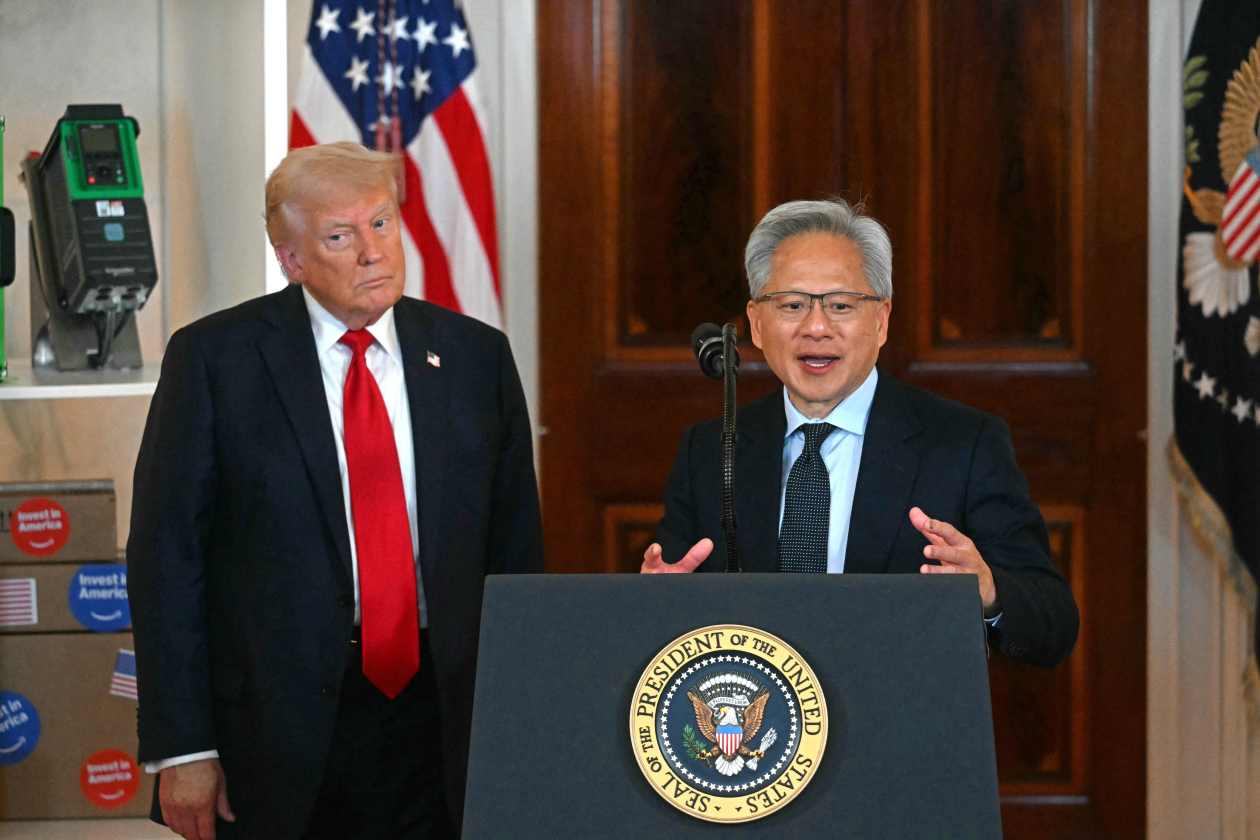Nvidia Corp. Chief Executive Jensen Huang has taken a divergent stance from former President Donald Trump regarding the state of artificial intelligence (AI) development in the United States compared to China. During a recent interview on CNBC’s “Squawk Box”, Huang asserted that the U.S. is “not far ahead” of China in AI advancements. This statement contrasts sharply with Trump’s remarks earlier this week, where he claimed that the U.S. is “beating everybody with AI at levels that nobody ever thought even possible.”
Huang’s position highlights the ongoing debate about the competitive landscape in AI technology. While Trump emphasized the United States’ superiority in the field, Huang’s comments suggest a more cautious perspective, underscoring the rapid advancements being made in China. The implications of this disagreement extend beyond mere rhetoric; they reflect the broader geopolitical tensions surrounding technology and innovation.
In his remarks, Huang pointed to the significant investments made by both countries in AI research and development. He noted that China has made impressive strides, particularly in areas such as machine learning and data processing capabilities. His analysis serves as a reminder that the race for AI dominance is characterized by dynamic shifts, and the competitive edge is not as clear-cut as some may suggest.
The conversation around AI is not just a matter of technological prowess; it also involves economic and strategic considerations. The U.S. has long maintained a lead in various tech sectors, but Huang’s comments indicate that this lead may be narrowing. As countries like China continue to invest heavily in AI, the global landscape is evolving, prompting calls for a reevaluation of strategies in both nations.
This disagreement also raises questions about the future of U.S.-China relations in technology. With both countries vying for leadership in AI, the potential for collaboration or conflict looms large. Huang’s insights could serve as a wake-up call for policymakers to recognize the urgency of addressing this competitive challenge.
As the dialogue surrounding AI continues to unfold, it is clear that figures like Huang will play a crucial role in shaping the narrative. His statements not only reflect his views as a leader in the tech industry but also signify the importance of a nuanced understanding of the challenges and opportunities that lie ahead in the realm of artificial intelligence.
In summary, the contrasting views of Huang and Trump on the U.S.’s position in AI development highlight a significant moment in the ongoing discourse about technology and its implications for global power dynamics. The stakes are high, and the conversation will likely evolve as both nations chart their paths forward in this critical field.
